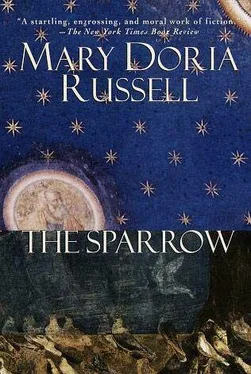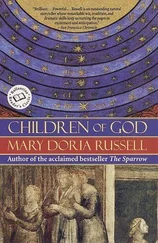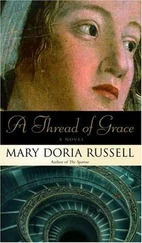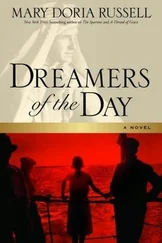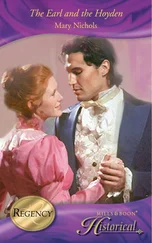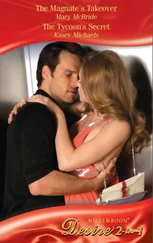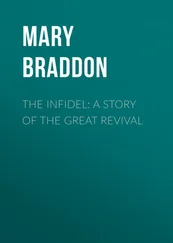Mary Russel - The Sparrow
Здесь есть возможность читать онлайн «Mary Russel - The Sparrow» весь текст электронной книги совершенно бесплатно (целиком полную версию без сокращений). В некоторых случаях можно слушать аудио, скачать через торрент в формате fb2 и присутствует краткое содержание. Город: New York, Год выпуска: 1996, ISBN: 1996, Издательство: Fawcett Columbine, Жанр: Социально-психологическая фантастика, на английском языке. Описание произведения, (предисловие) а так же отзывы посетителей доступны на портале библиотеки ЛибКат.
- Название:The Sparrow
- Автор:
- Издательство:Fawcett Columbine
- Жанр:
- Год:1996
- Город:New York
- ISBN:0-449-91255-8
- Рейтинг книги:5 / 5. Голосов: 1
-
Избранное:Добавить в избранное
- Отзывы:
-
Ваша оценка:
- 100
- 1
- 2
- 3
- 4
- 5
The Sparrow: краткое содержание, описание и аннотация
Предлагаем к чтению аннотацию, описание, краткое содержание или предисловие (зависит от того, что написал сам автор книги «The Sparrow»). Если вы не нашли необходимую информацию о книге — напишите в комментариях, мы постараемся отыскать её.
Awards:
John W Campbell Memorial Award (nominee)
Arthur C. Clarke Award
British Science Fiction Association
The Sparrow — читать онлайн бесплатно полную книгу (весь текст) целиком
Ниже представлен текст книги, разбитый по страницам. Система сохранения места последней прочитанной страницы, позволяет с удобством читать онлайн бесплатно книгу «The Sparrow», без необходимости каждый раз заново искать на чём Вы остановились. Поставьте закладку, и сможете в любой момент перейти на страницу, на которой закончили чтение.
Интервал:
Закладка:
She looked up at him, eyes opaque and narrowed, as he stood waiting for a slight unbending from her, a simple civil greeting. "The gentlemanly Spanish hidalgo act is tasteless," she told him quietly. She let the silence go on for a moment and then her eyes dropped to her notebook. "Let's get on with it, shall we?"
It didn't take much of that to exorcize the Jungian vision of her as the ideal Spanish woman from his mind. By the end of the month, he was able to see her as an actual person and began trying to figure her out. English was not her first language, he was sure. Her grammar was too precise and her dentals were a bit damped, the sibilants a little drawn out. Despite her name and appearance, her accent was not Hispanic. Or Greek. Or French or Italian, or anything else he could identify. He put her single-mindedness down to the fact that she was paid on a fee-for-project basis: the faster she worked, the more she made. It was an assumption that appeared to be confirmed when she berated him once for being late.
"Dr. Sandoz," she said. She never called him Father. "Your superiors are paying a great deal of money to have this analysis done. Do you find it amusing to waste their resources and my time?"
The only occasion she said anything about herself was toward the end of a session that embarrassed him so thoroughly he even dreamed about it once, and awoke cringing at the memory. "Sometimes," he told her, leaning forward over the table, speaking without realizing how it would sound, "I begin with songs. They provide a sort of skeleton grammar for me to flesh out. Songs of longing for future tense, songs of regret for past tense, songs of love for the present."
He blushed when he heard what he'd said, making it worse, but she took no offense; indeed, she seemed to miss any connection that might have been taken wrongly. Instead, she seemed struck by a coincidence and looked out the cafe window, her mouth open slightly. "Isn't that interesting," she said, as though nothing else he'd told her so far had been, and continued thoughtfully, "I do the same thing. Have you noticed that lullabies nearly always use a lot of command form?"
And the moment passed, for which Emilio Sandoz thanked God.
If the sessions with Mendes were draining and faintly depressing, he found balance in an extraordinary Latin 101 student. In her late fifties, fine white hair drawn into a neat French braid, Anne Edwards was compact, quick and intellectually fearless, with a lovely pealing laugh she made frequent use of in class.
Two weeks into the course, Anne waited until the rest of the students cleared out of the room. Emilio, gathering his notes from the desktop, looked up at her expectantly.
"Are you allowed out of your room at night?" she asked. "Or do the cute ones like you have a curfew until they're senile?"
He flicked the ash off an air cigar and waggled his eyebrows. "What do you have in mind?"
"Well, I considered suggesting that we shatter our vows and run away to Mexico for a weekend of lust, but I've got homework," she said, shouting the last word, "because some sonofabitch Latin prof thinks we should learn ablative way too soon, in my humble opinion, so why don't you just come over for dinner on Friday night?"
Leaning back against his chair, he looked up at her with frank admiration. "Madam. How could I resist an invitation like that?" he asked. And leaning forward, "Will your husband be there?"
"Yes, dammit, but he's a very liberal and tolerant person," Anne assured him, grinning. "And he falls asleep early."
The Edwardses' house was a square, sensible-looking structure, surrounded by a garden that, Emilio was delighted to see, mixed flowers with tomatoes and pumpkin vines, lettuces, carrot patches and pepper plants. Pulling off gardening gloves, George Edwards greeted him in the front yard and waved him in through the door. A good face, Emilio thought, full of humor and welcome. Anne's age, with a full head of silver hair but with the alarming leanness one associated with chronic HIV or toxic hyperthyroidism, or aging runners. Running was the most likely explanation. The man looked very fit. Not, Emilio thought, smiling inwardly, the sort to fall asleep early.
Anne was in the large, bright kitchen, working on dinner. Emilio recognized the smell instantly but it was a moment before he could put a name to it. When he did, he collapsed into a kitchen chair and moaned, "Dios mio, bacalaitos!"
Anne laughed. "And asopao. With tostones. And for dessert—"
"Forget the homework, dear lady. Run away with me," Emilio pleaded.
"Tembleque!" she announced, triumphant, laughing but happy that she'd pleased a guest. "A Puerto Rican friend of mine helped with the menu. There's a wonderful colmado on the west side. You can get yautia, batatas, yuca, amarillos —you name it."
"You are probably unaware," Emilio said, face sincere, eyes glowing, "that there was a seventeenth-century Puerto Rican heretic who claimed that Jesus used the smell of bacalaitos to raise Lazarus from the dead. The bishop had him burned at the stake, but they waited until after dinner and he died a happy man."
George, laughing, handed Sandoz and Anne frosty shallow-bowled glasses, froth floating on creamy liquid. "Bacardi anejo," Sandoz breathed, reverent. George raised his glass and they toasted Puerto Rico.
"So," Anne said in a serious tone, delicate brows raised in polite interest, the soul of propriety but about to take a sip of her drink. "What's celibacy like?"
"It's a bitch," Emilio said with prompt honesty, and Anne exploded. He handed her a napkin to wipe her nose and, without waiting for her to recover, stood and created an earnest face to address a phantom crowd at an old-time Twelve Step meeting. "Hello. My name is Emilio and though I can't remember it, my unempowered inner child might have been a codependent sex addict, so I rely on abstinence and put my trust in a Higher Power. You're dripping."
"I am a highly skilled anatomist," Anne declared with starchy dignity, dabbing at her blouse with the napkin, "and I can explain the exact mechanism by which one blows a drink out one's nose."
"Don't call her bluff," George warned him. "She can do it. Have you ever thought about a Twelve Step program for people who talk too much? You could call it On and On Anon."
"Oh, God," Anne groaned. "The old ones are the best ones."
"Jokes or husbands?" Emilio asked innocently.
And so the evening went.
When he next showed up for dinner, Anne met him at the door, put her hands on both sides of his face, rose on tiptoe and planted a chaste kiss on his forehead. "The first time you're here, you are a guest," she informed him, looking into his eyes. "After that, my darling, you're family. Get your own damned beer."
He took the long enjoyable walk to the Edwardses' house at least once a week after that. Sometimes he was the only guest. Often there were others: students, friends, neighbors, interesting strangers Anne or George had met and brought home. The conversation, about politics and religion and baseball and the wars in Kenya and Central Asia and whatever else caught Anne's interest, was raucous and funny, and the evenings ended with people calling out last jokes as they walked off into the night. The house became his cave—a home where a Jesuit was welcome and relaxed and off-duty, where he could soak up energy instead of being drained of it. It was the first real home Emilio Sandoz had ever had.
Sitting in their screened-in back porch, sipping drinks in the dusk, he learned that George was an engineer whose last job had involved life-support systems for underwater mining operations but whose career had spanned the technological distance from wooden slide rules to ILIAC RV and FORTRAN to neural nets, photonics and nanomachines. New to retirement, George had spent the early weeks of freedom cutting a swath through the old house, catching up on every small repair, taking curatorial pride in the smoothly working wooden window casings, the tuck-pointed brickwork, the tidiness of the workroom. He read stacks of books, eating them like popcorn. He enlarged the garden, built an arbor, organized the garage. He sank into pillowy contentment. He was bored brainless.
Читать дальшеИнтервал:
Закладка:
Похожие книги на «The Sparrow»
Представляем Вашему вниманию похожие книги на «The Sparrow» списком для выбора. Мы отобрали схожую по названию и смыслу литературу в надежде предоставить читателям больше вариантов отыскать новые, интересные, ещё непрочитанные произведения.
Обсуждение, отзывы о книге «The Sparrow» и просто собственные мнения читателей. Оставьте ваши комментарии, напишите, что Вы думаете о произведении, его смысле или главных героях. Укажите что конкретно понравилось, а что нет, и почему Вы так считаете.
